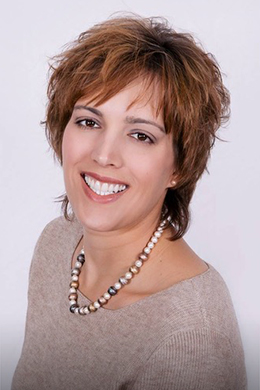Jennifer Hobbs
 Why did you choose Northwestern?
Why did you choose Northwestern?
As an undergraduate, I chose Northwestern because of the academic opportunities, proximity to Chicago, residential college program, and Big Ten sports. The Integrated Science Program enabled me to be exposed to a broad range of scientific fields at a very high level and this was very important to me. For graduate school, I visited a dozen different universities I was accepted to, but in the end decided I liked everything about Northwestern more- my research, my advisor, the location, and the community- so I stayed.
How would you describe your research and/or work to a non-academic audience? What was it then and/or what is it now?
I began my research at Fermilab helping to build tools to test components of the MINERvA detector. During my PhD I moved into a lab exploring how the brain encodes touch by studying mechanical signals and associated neural signals from rats as they explored different surfaces with their whiskers. Through that work, I became increasingly involved and interested in machine learning and computer vision. Today I lead a team of scientists and engineers to extract important information from high-resolution aerial imagery using ML and CV to help farmers better manage their fields and engage in sustainable agriculture.
Tell us who or what inspired your research and/or work.
I was fortunate to have a number of supporters throughout my STEM career going back to junior high and high school math and science teachers. My undergraduate and graduate advisor Heidi Schellman was instrumental in my career. I could not do what I do today if she had not had the faith in me and encouraged me to continue to develop my programming skills, which were not particularly stellar as an early undergraduate. My PhD adviser Mitra Hartmann instilled in me a great passion for my research topic, which I still love, as well as helped me to become a scientific mentor and teacher.
What are you most proud of in your career to date?
Throughout my career, whether it was working at Slivka and Hobart Residential Colleges in graduate school or as a manager and now director, I have always been focused on team development and building effective, supportive communities. Seeing so many of the amazing careers of the students I used to mentor and advise is extremely rewarding. Similarly, helping my team members advance their careers through skillset development, publications, speaking engagements, etc. to help them take the next step in their careers is something I'm very proud of.
Tell us about a current achievement or something you're working on that excites you.
This past year my team had a number of papers published at top journals and conferences including AAAI, CVPR Workshops, Frontiers in Robotics and AI, and Frontiers in Plant Science. In a completely different vein, over the past year, I started a series of socials at top ML Conferences (ICML, ICLR, NeurIPS) focused on engaging current and former physicists who now work in or closely with the machine learning community. Through this, we connected attendees with the APS GDS topical group, helped students and early career scientists answer questions about career transitions and opportunities, and just had a good time.
What advice would you give your younger self or someone considering a similar path?
No career path is linear and we are rarely successful in planning out our future in precise detail; the decisions which were the most important in my career also felt the riskiest at the time because they went in a different direction, but this also enabled me to rapidly expand my skillset. Particularly early on in your career, a job that provides you with the ability to acquire new skills and develop your skills has a tremendous amount of value.